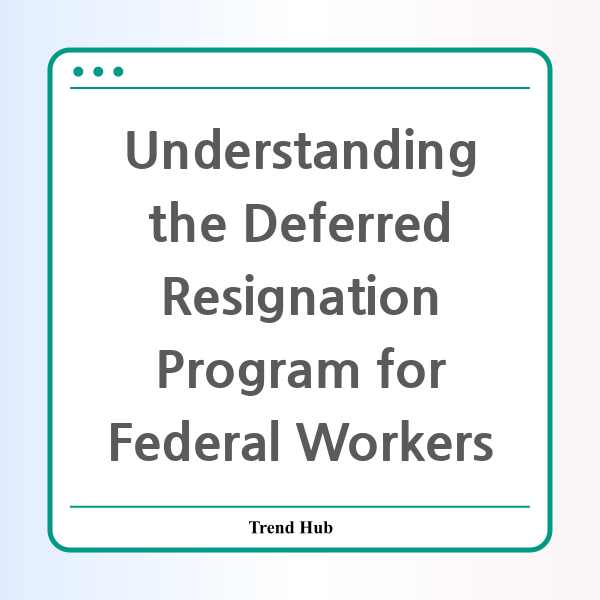* This website participates in the Amazon Affiliate Program and earns from qualifying purchases.

As the deadline approaches for federal workers considering the deferred resignation program, many are left grappling with significant decisions about their careers. The Trump administration's offer, which allows eligible employees to resign but receive their pay through the end of September, has sparked intense debate among federal employees, unions, and governmental bodies. What does this mean for the future of federal employment?
The Deferred Resignation Offer Explained
Initially set to conclude on Thursday, the acceptance deadline was paused by a federal judge following a lawsuit from labor unions seeking to challenge its legality. The program is viewed as a critical effort by the administration to reduce the size of the federal workforce, with a target resignation rate of 5% to 10% of the 2 million federal employees.
Under this program, eligible federal workers have the chance to leave their jobs but continue getting paid until the end of September, creating a financial safety net as they transition out of government service. However, the offer is not without its complications and risks.
Concerns Raised by Unions
Federal unions are urging their members to reconsider accepting this package. They highlight that the terms may be unreliable and lacking legal backing, pointing out issues such as:
- Confusion over whether employees would be required to work during this period.
- Concerns about the potential consequences of not opting into the program.
- Legal bindings that limit employees' rights if they decide to rescind their resignation.
The American Federation of Government Employees and other unions argue that the program amounts to an arbitrary ultimatum, creating undue pressure on federal employees who feel they must accept to secure their jobs.
Early Retirement Incentives
To make the offer more attractive, the administration is also providing an early retirement incentive known as Voluntary Early Retirement Authority (VERA). This allows older workers—those aged 50 or above with at least 20 years of service or any age with 25 years of service—to leave their roles with benefits.
This dual approach of deferred resignation and early retirement has led to at least 50,000 federal employees accepting the offer. However, they are not alone in their inquiry; many are seeking clarification on whether they would need to continue working through the end of the fiscal year, especially in essential roles such as the IRS during tax season.
Risks of Acceptance
While many view the deferred resignation program as a generous opportunity, it also poses substantial risks:
- Employees may find themselves ineligible for reinstatement should the administration later backtrack on commitments.
- The agreement signed upon acceptance strips employees of the right to challenge terms, which raises concerns about workers' rights.
- With a looming fiscal uncertainty, employees are concerned about receiving their full pay even though the government is currently funded only through mid-March.
The skepticism expressed by unions like the National Treasury Employees Union suggests that employees are wary of potential changes in job expectations once they have accepted the offer.
Conclusion: Navigating Uncertainty
The deferring resignation program represents a strategic move by the Trump administration to reshape the federal workforce. While it presents immediate financial relief for those opting in, the long-term implications for federal workers remain uncertain. Employees must weigh the pros and cons carefully, considering the risks involved in accepting such offers amidst an evolving political landscape.
As negotiations and legal proceedings continue, federal employees are encouraged to stay informed and seek guidance from their unions before making decisions that could significantly impact their careers.
* This website participates in the Amazon Affiliate Program and earns from qualifying purchases.